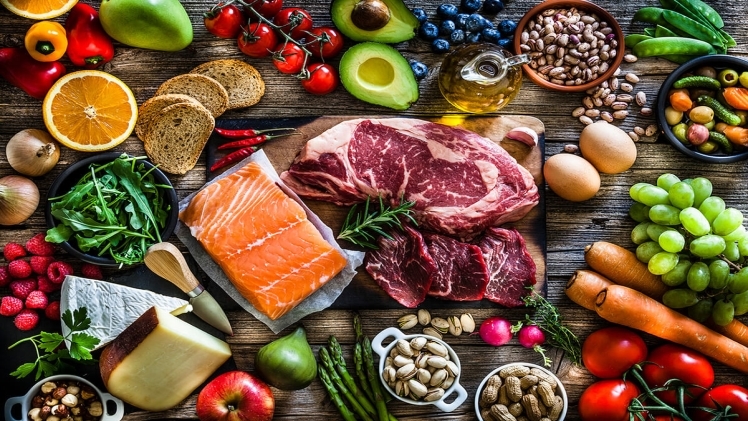Embarking on a fitness journey is an exhilarating adventure that transforms how you look, feel, and function. The cornerstone of any successful fitness regimen isn’t just found in the gym; it’s primarily in your kitchen and on your plate. Proper nutrition is the unsung hero of peak performance, fueling your workouts, aiding recovery, and ensuring you hit your goals, whether about building muscle, losing weight, or boosting endurance. Let’s dive into some practical nutrition tips to help you fuel your body right for optimal fitness performance.
Understanding the Basics of Nutrition for Fitness
The Role of Macronutrients
At the heart of good nutrition for fitness are the macronutrients: carbohydrates, proteins, and fats. Each plays a unique role in fueling your body’s needs, especially when you’re active.
- Carbohydrates are your body’s primary energy source, especially for high-intensity workouts. They’re stored in your muscles and liver as glycogen, which you draw upon during exercise. Opt for complex carbs that sustain energy, like whole grains, fruits, and vegetables.
- Proteins are crucial for muscle repair and growth. After a workout, your muscles are eager for protein to start the recovery process. Lean meats, fish, dairy, legumes, and plant-based proteins are excellent sources.
- Fats shouldn’t be feared; they’re essential for long-term energy, hormone production, and nutrient absorption. Focus on healthy fats from avocados, nuts, seeds, and oily fish.
Hydration: The Unsung Hero
Water is vital for peak performance. It aids digestion, nutrient absorption, joint lubrication, and body temperature regulation during exercise. Staying well-hydrated means drinking water throughout the day, not just during workouts.
Tailoring Your Nutrition for Your Fitness Goals
Nutrition for Muscle Building
If you want to build muscle, your body needs more calories than usual to fuel your workouts and the muscle repair process. Increase your protein intake to support muscle growth, and don’t shy away from carbs—they provide the energy needed for intense training sessions.
Nutrition for Weight Loss
For those focusing on weight loss, the key is creating a calorie deficit—burning more calories than you consume. However, cutting calories doesn’t mean sacrificing nutrition. Focus on nutrient-dense foods that are low in calories but high in vitamins and minerals to keep you feeling full and energised.
Nutrition for Endurance Training
Endurance athletes need a diet rich in carbohydrates to maintain energy levels during long training sessions. However, protein is also essential for recovery, and fats can provide a valuable energy source for longer, less intense workouts.
Practical Tips for Everyday Nutrition
- Meal Timing and Frequency: Consider your meal timing and frequency to align with your training schedule. Eating a small, carb-rich snack an hour before a workout can boost energy levels, while a protein-rich meal afterwards supports recovery.
- Balance and Variety: Ensure your diet includes various foods for a broad spectrum of nutrients. Different coloured fruits and vegetables, various protein sources, and multiple whole-grain options can all contribute to a well-rounded diet.
- Supplementation: While whole foods should always be your first choice, supplements like protein powders, BCAAs, or omega-3s can be beneficial, especially if you struggle to meet your nutritional needs through diet alone.
Optimising your nutrition for fitness extends beyond the kitchen; it involves finding a supportive community or group that mirrors your dedication to health and wellness. Engaging in activities like group fitness classes can be an incredibly motivating and enriching experience. These classes do more than push you physically; they foster a sense of camaraderie and provide invaluable support that can be pivotal in sustaining a healthy lifestyle over the long term. Whether it’s the energising beats of a spinning class, the tranquil focus of yoga, the intense challenge of HIIT, or the core-strengthening moves of pilates, group fitness offers diverse activities designed to cater to a wide range of interests and fitness levels. This communal approach to wellness helps keep you accountable and adds a fun and social aspect to exercise, making it easier to incorporate into your daily routine.
Conclusion
Nutrition is a powerful tool in your fitness arsenal. By understanding and applying these nutrition tips, you’re setting the stage for peak performance, faster recovery, and achieving your fitness goals. Remember, consistency is vital—not just in your workouts but in how you fuel your body. Your diet doesn’t have to be perfect, but it should be purposeful, mindful, and aligned with your fitness objectives. Fueling your body right is a journey, not a destination, so enjoy the process and the progress you’ll undoubtedly make along the way. For more information, visit this website: https://www.fitnesscartel.com.au/group-fitness.

